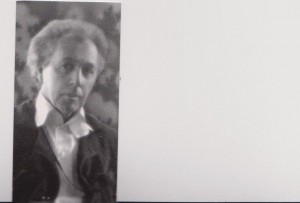(Frank Lloyd Wright–The greatest architect of all time who had no use for ‘pig-piling’– what he said most of society does, conformingly)
“The boughs of no two trees ever have the same arrangement./Nature always produces individuals.”–Lydia Maria Child, Letters from New York–second series (1845)
‘Connection’ is a desirable aspect potentially achievable with the dead and living, and via the real, fictional, and online–but it is best, of course, realized through close connection to friends, a ‘significant other’, family, one’s children and (great) grandchildren.
However, the fact remains that we are all of us individuals and regardless of how connected with and empathetic we are with others, our main consciousness and experience is largely ‘separate’, separated, unique, and individual. We are each of us defined and, to some extent, limited by those two things. We, each of us, have individual characters, personas, values, beliefs, styles, voices, senses of humor, and so forth which identify us and which are uniquely us.
Much of our days is spent ‘inside’, largely isolated from others. Our inner life and personal experience are how we, to some extent too, measure many, if not most, of our interactions with others, places, and events. Often, we are comparing and measuring our relative contentment, satisfaction, happiness, status, and success during our contacts with others.
The fact is, as any psychologist would likely tell you, we have to live with ourselves, accepting who we are, our limits and limitations. Oftentimes, our dreams may frustrate us by the simple fact they cannot be achieved or don’t match up significantly with those of others we wish to be with or, perhaps, love.
“To have one’s individuality completely ignored is like being pushed quite out of life
Like being blown out as one blows out a light.”–Evelyn Scott, “Escapade”
Hamlet’s “To thine own self be true” has long offered a wisdom and perspective about these conflictful matters. The honest person and the most self-accepting person is the one who is and remains true to his/her own personal nature and potentialities, with all the limits and limitations that that thought implies.
Ironically, it is on the basis of self-acceptance and self-knowledge that one can proceed to have a good, happy, fulfilled life. Obviously, freedom has a lot to do with this possibility once adulthood has been achieved. The lucky persons who are free are able to construct their days, make of them as they choose, even without worrying how much something may cost. The true individual moves through the day without worrying what others will think of his/her dress, appearance, behavior, and choices. He or she makes his/her own day or own life.
The true individual kowtows to no external, extraneous, bogus authority who prescribes how others should live. The free-est individual is able to think and create freely, expressing whatever he or she thinks. It is from such a position of self-possession and conscious will that individuals can and ought to live freely with as much social interaction and connection as they choose or require.
The simple fact, too, is that we are who and what we are. For that, we need may make no apologies if we do not conform to the many wishes, limits and limitations imposed on us by others. It is for others to figure out their own responses and to construct their own meanings within their own lives and worlds. Although we can offer our best opinions, advice, and help, it is up to others to make their own meanings and purposes as individuals within their own lives and experiences. In that, the free-est and best sense of what it means to be an individual and to account for the unique individuality of each of our basically autonomous lives.
“I’ll walk where my own nature would be leading: It vexes me to choose another guide.”–Emily Bronte, “Stanzas”

